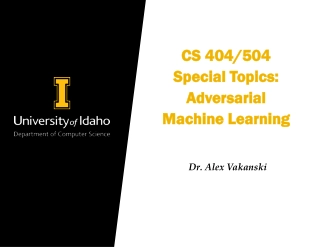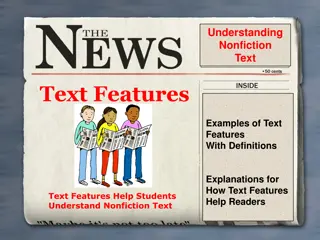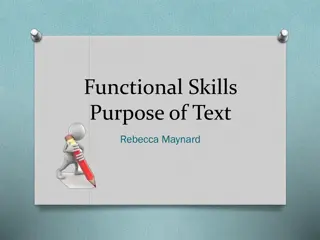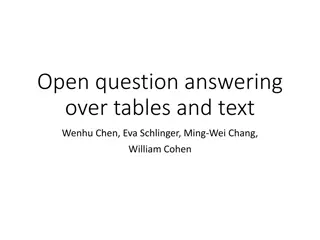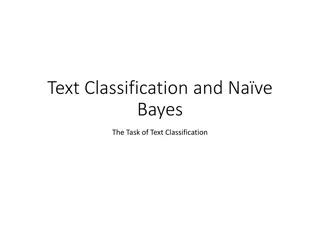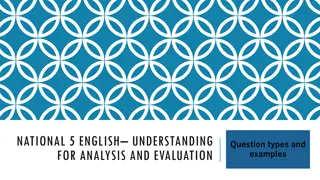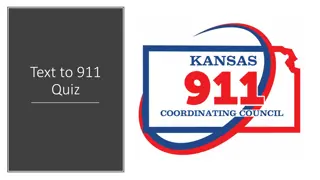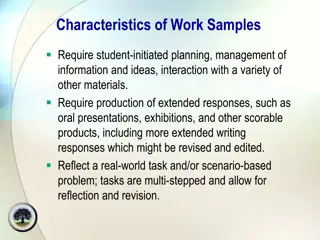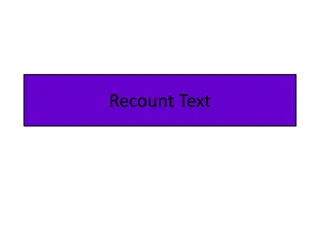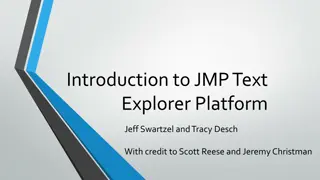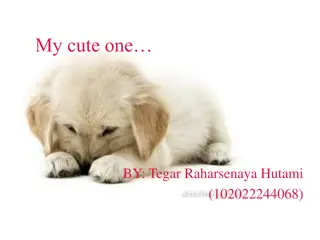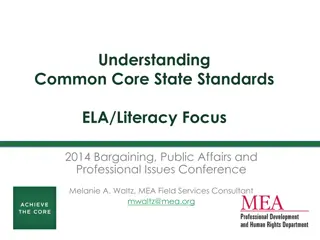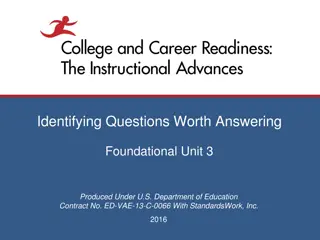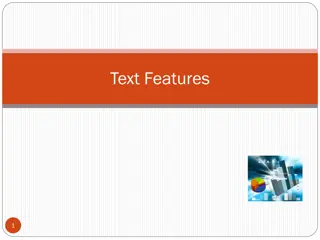Text Features
This article discusses the environmental impact of bottled water versus tap water, highlighting the issues of plastic pollution, safety concerns, and the importance of recycling. It encourages readers to consider their water consumption habits and make sustainable choices.
Uploaded on Feb 16, 2025 | 2 Views
Download Presentation

Please find below an Image/Link to download the presentation.
The content on the website is provided AS IS for your information and personal use only. It may not be sold, licensed, or shared on other websites without obtaining consent from the author.If you encounter any issues during the download, it is possible that the publisher has removed the file from their server.
You are allowed to download the files provided on this website for personal or commercial use, subject to the condition that they are used lawfully. All files are the property of their respective owners.
The content on the website is provided AS IS for your information and personal use only. It may not be sold, licensed, or shared on other websites without obtaining consent from the author.
E N D
Presentation Transcript
Text Features
Drinking Water: Bottled or From the Tap? If your family is like many in the United States, unloading the week s groceries includes hauling a case or two of bottled water into your home. On your way to a soccer game or activity, it s easy to grab a cold one right out of the fridge, right? So Much Oil But all those plastic bottles use a lot of fossil fuels and pollute the environment. In fact, Americans buy more bottled water than any other nation in the world, adding 29 billion water bottles a year to the problem. In order to make all these bottles, manufacturers use 17 million barrels of oil. That s enough oil to keep a million cars going for one year. Imagine a water bottle filled a quarter of the way up with oil. That s about how much oil was needed to produce the bottle. Is it Safe? So why don t more people drink water straight from the kitchen faucet? Some people drink bottled water because they think it is better for them than water out of the tap, but that s not true. In the United States, cities make sure water from the faucet is safe to drink. There is also growing concern that chemicals in the bottles themselves may leach into the water. Easy but Bad! People love how easy it is to drink bottled water it is convenient. But maybe if they realized the problems it causes, they would try drinking from a glass at home or carrying water in a refillable metal container instead. Plastic bottle recycling can help instead of going out with the trash, plastic bottles can be turned into items like carpeting or cozy fleece jackets. Don t Pollute Unfortunately, for every six water bottles we use, only one makes it to the recycling bin. The rest are sent to landfills - big piles of trash that are eventually buried. Or, even worse, they end up as trash, sitting on the land or in rivers, lakes, and the ocean. Plastic bottles take many hundreds of years to disintegrate, or break into smaller pieces. Water is good for you, so keep drinking it. But think about how often you use water bottles, and see if you can make a change. And yes, you can make a difference. Remember this: Recycling one plastic bottle can save enough energy to power a light bulb for six hours.
1. This selection is most likely from a A. Story book C. Magazine B. Textbook D. Dictionary 2. This selection mostly A. Describes C. Gives a problem & its solution B. retells events D. Compares & contrasts 3. In which section of the article does the following information belong? There are 53 landfills just in the state of Michigan. A. So Much Oil C. Easy but Bad B. Is it Safe? D. Don t Pollute 1. This selection is A. Fiction B. Non-fiction
1. Where would you look to find out about taking a puppy to the doctor? A. Chapter 1 B. Chapter 3 C. Chapter 5 D. Chapter 7 2. In what kind of book do you think this page belongs? A. A novel B. A dictionary C. An encyclopedia D. An informational book 3. Predict the title of this book.
Title: Gives the main idea of the entire book
Table of Contents: Lists the chapters of the book and gives general information about the what is in the book
Heading: Gives the maid idea or topic of one section of the book Subheading: Gives the main idea of a small part of a section
Index: Tells where to find information about specific topics in the book


